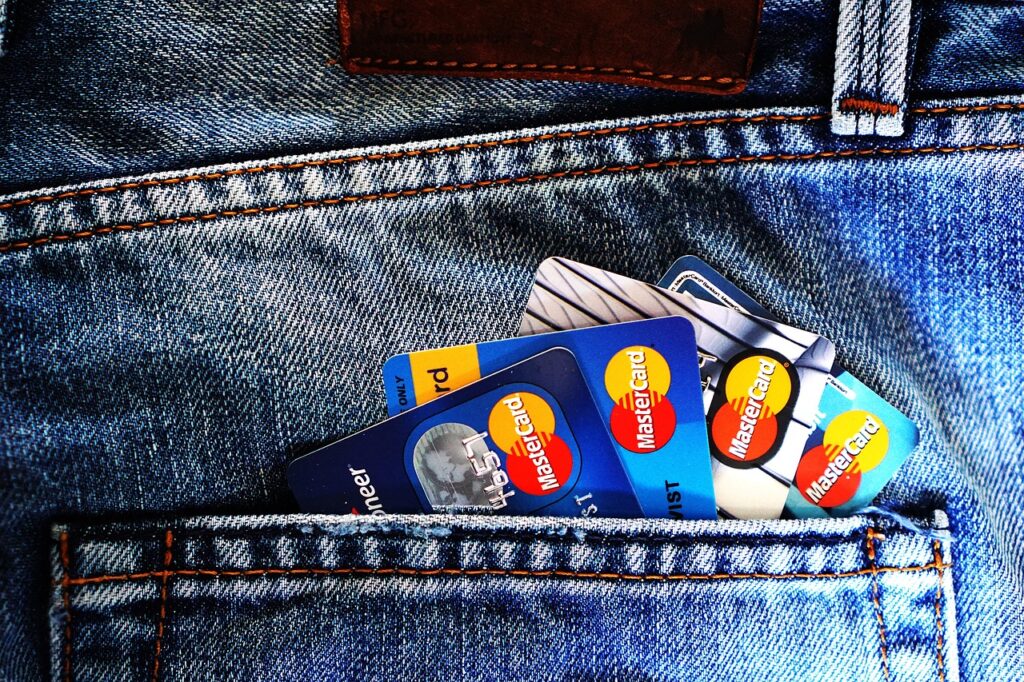It will be a much simpler card in its place. It’s alright. You won’t always be able to use this card. You should utilize it to establish or repair your credit before moving on to a better product.
The secured credit cards, in our opinion, are the ideal for people with bad credit. With these cards, you deposit a security amount to safeguard the issuer from nonpayment. (You can get your money back when you close the account or improve it).
Secured cards are some of the simplest to get because the deposit lowers the risk. However, approval isn’t certain because you still have to demonstrate your source of income and you risk being turned down if your credit record has any severe errors like bankruptcies. Study up on protected cards.
Unsecured cards for people with bad credit are another alternative. These cards don’t require a deposit, but they frequently have hefty fees that, over time, add up to more than the normal deposit on a secured card.
Recently, several new credit card issuers have started to provide credit cards with no credit checks and minimal or no fees. Nevertheless, these products might have additional downsides. Store credit cards can also be simpler to obtain, but proceed with caution as they often have low credit limits and high interest rates.
The finest credit cards for people with weak credit are included below, along with some helpful links and a list of cards you should steer clear of.
Choose your credit card for bad credit
What is a limited credit?
If your credit history is insufficient, you will lack a track record with lenders of money or other assets.
Someone else will be depending on you to keep your pledge to pay, whether you’re looking for rental property, a personal loan, a student loan, a line of credit, or something similar. Among those that have access to your credit report are:
- insurance businesses
- Financial institutions and banks
- Employers and landlords
- Lenders of mortgages, vehicle loans, and other loans
The cofounders of the business that is now known as FICO® invented the credit score in 1956. Lenders now use this number, or a derivative of it, to assess receivers’ creditworthiness and determine lending rates.
You might be asking whether having no credit equates to having negative credit before you’ve proven your creditworthiness.
Fortunately, having no credit history doesn’t automatically indicate that you have poor credit. It simply means that you haven’t demonstrated that you can be relied upon to repay your bills.
The majority of lenders, unfortunately, want verification of credit history before they grant a loan, so you must already have credit in order to establish credit—a classic chicken-or-the-egg scenario.
You are not alone if your credit history is insufficient. According to the Consumer Financial Protection Bureau (CFPB), 8% of adults had credit histories that were “unscorable” by popular credit scoring models. Insufficient credit history and a lack of recent credit history accounted for nearly half of these “unscorable” records.
How Credit History Contributes to Credit Scores
Although over 90% of consumers start building credit history in their mid to late 20s, the CFPB notes that in 2010, more than 11% of people were “credit invisible,” which implies they had neither enough credit history nor any history at all.
The work of gathering and preserving information about a person’s creditworthiness falls within the purview of the three major credit bureaus: TransUnion, Experian, and Equifax.
The borrower’s credit score may be checked by lenders and other parties who are curious about the borrower’s creditworthiness. These ratings might be between 300, which is considered to be very bad credit, and 850, which is considered to be very good credit.

